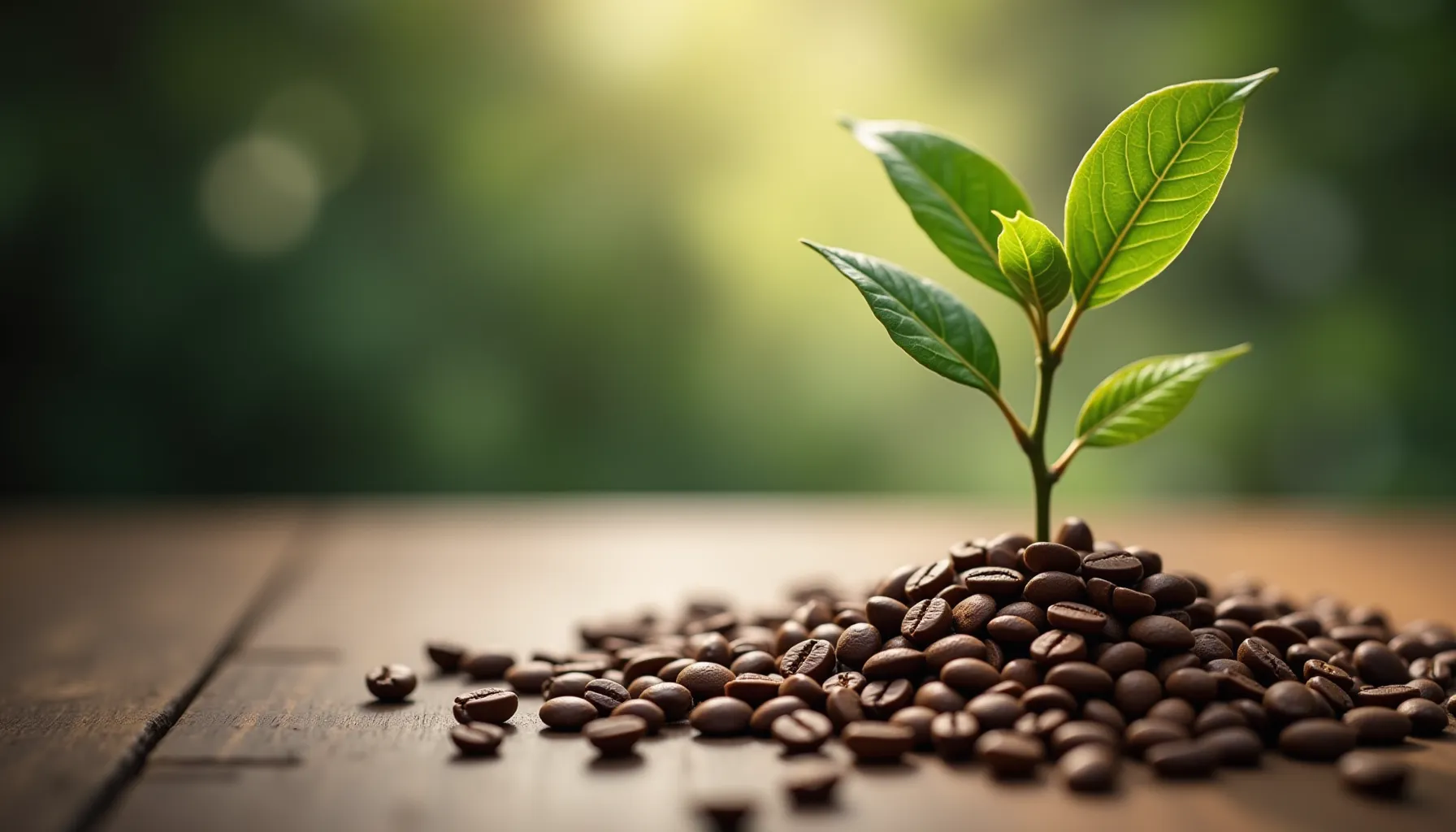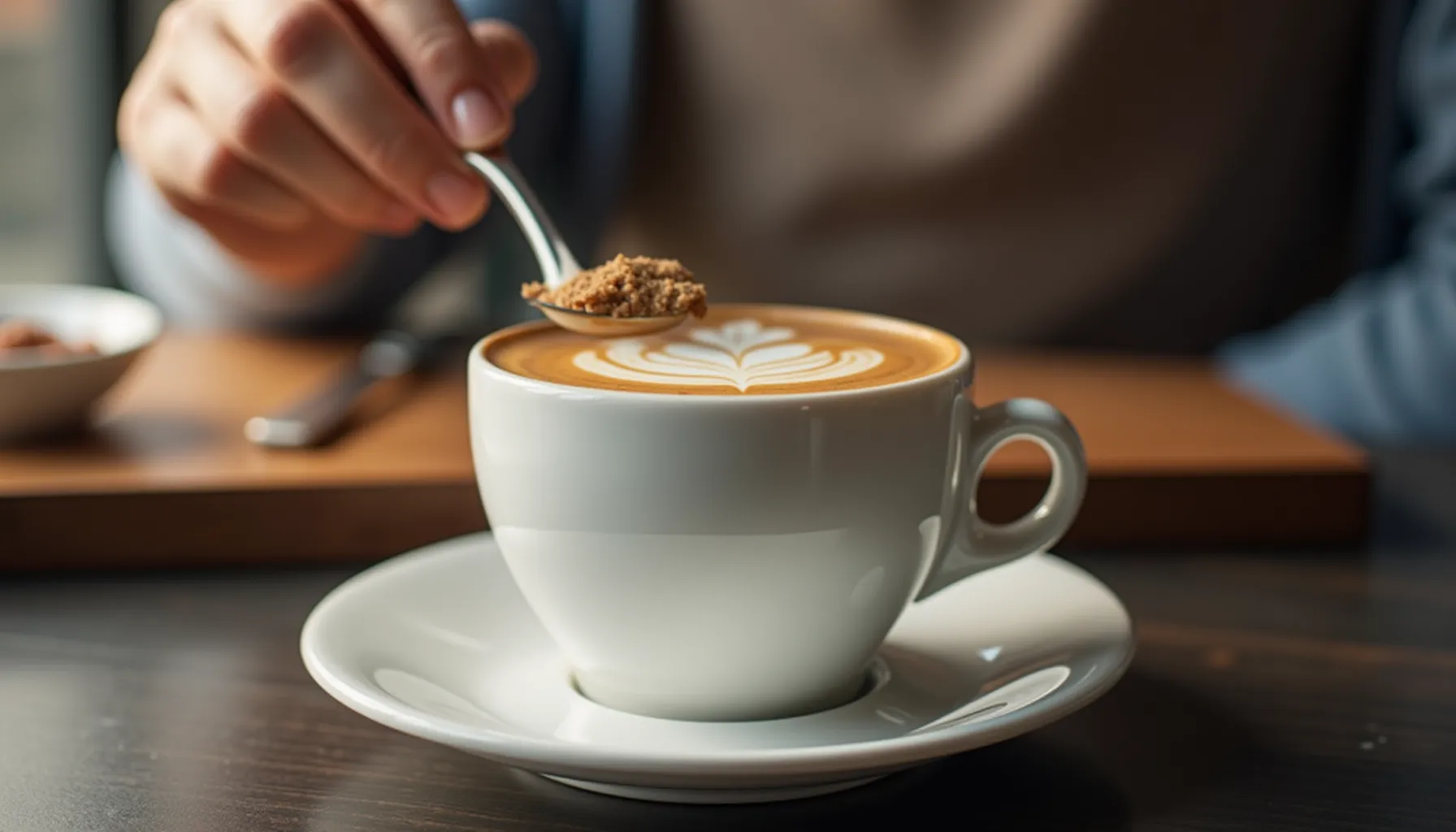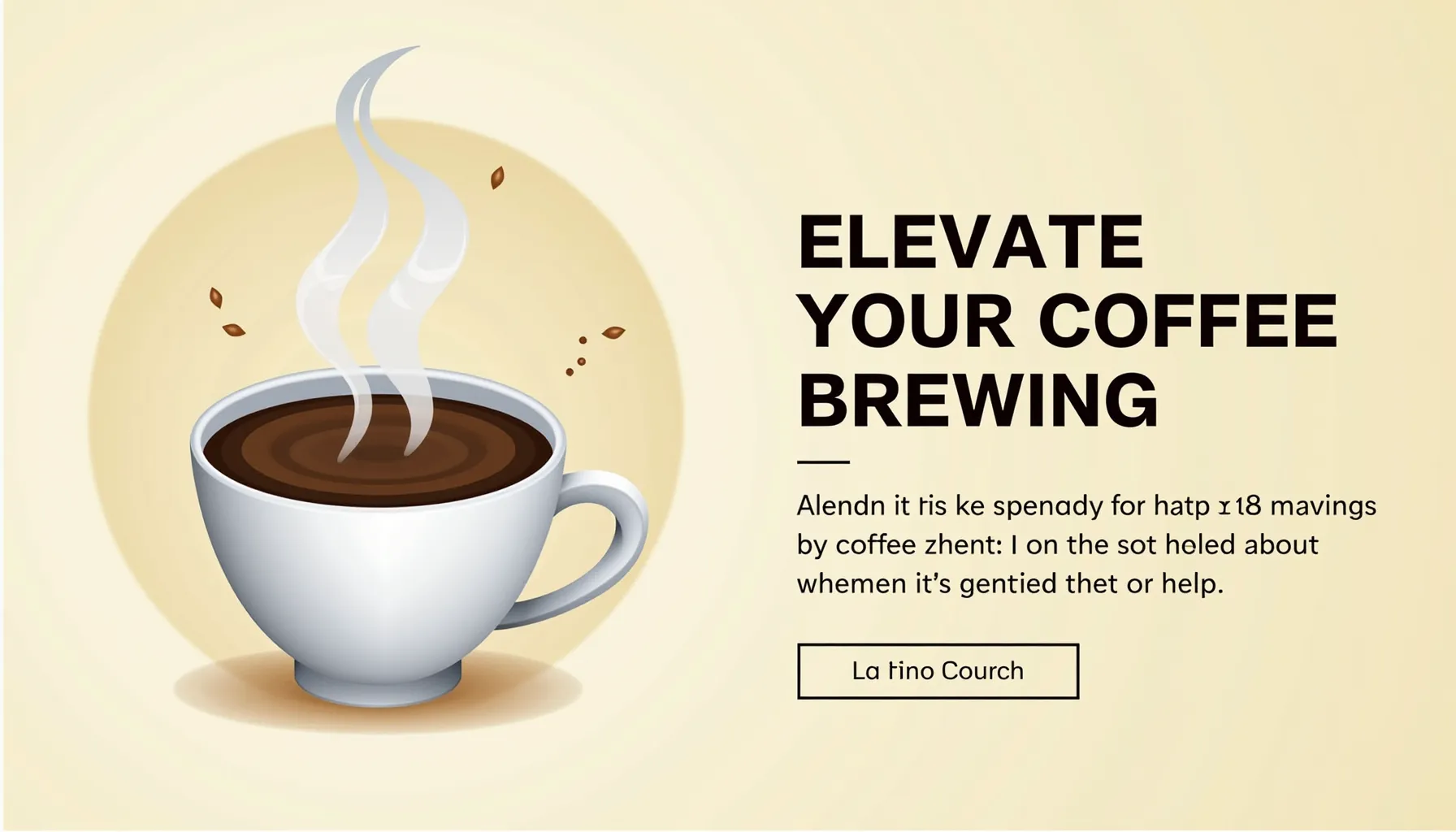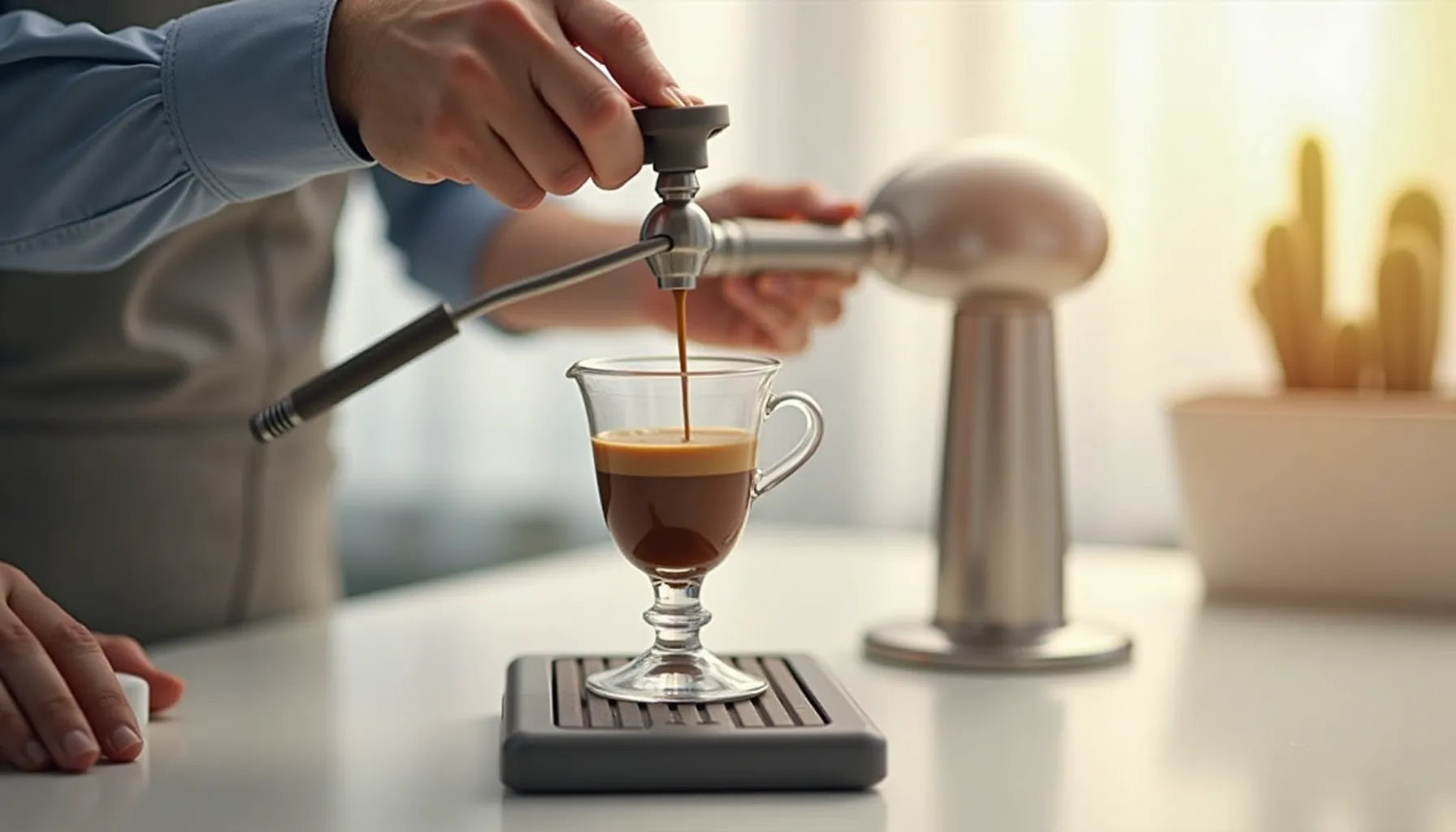Navigating the world of best coffee brands can feel like an overwhelming expedition through a caffeine-laden wilderness. With the global coffee market exploding to a staggering $102.15 billion and continuing to grow at a remarkable 4.3% annually, choosing the right coffee is no longer just a morning ritual—it's a strategic lifestyle decision.
Gone are the days when coffee was a simple commodity. Today, it's a complex universe of flavor profiles, sustainability practices, and cultural experiences that extend far beyond your morning mug. From small-batch roasters pushing the boundaries of ethical sourcing to innovative brands transforming how we think about our daily brew, the coffee landscape has never been more exciting or diverse.
This comprehensive guide isn't just another list of coffee brands—it's your passport to understanding the nuanced world of exceptional coffee. We'll dive deep into what makes a coffee brand truly outstanding, explore the pioneers reshaping the industry, and provide you with the insights to elevate your coffee experience from ordinary to extraordinary.
Key Takeaways
- Comprehensive Brand Insights: Discover the top coffee brands redefining quality and taste
- Selection Criteria Unveiled: Learn the expert benchmarks for evaluating coffee brands
- Emerging Coffee Trends: Explore the latest innovations in coffee production and consumption
- Sustainable Practices: Understand the importance of ethical sourcing and environmental responsibility

Understanding Coffee Brand Excellence
Coffee isn't just a beverage—it's a complex world of craftsmanship, tradition, and innovation. The best coffee brands transcend mere caffeine delivery, representing a holistic experience that combines exceptional taste, ethical sourcing, and cultural storytelling.
Quality Benchmarks: The Gold Standard of Coffee
Specialty coffee scoring systems have revolutionized how we evaluate coffee brands. The Specialty Coffee Association (SCA) uses a rigorous 100-point scale that considers factors like fragrance, aroma, flavor, aftertaste, acidity, body, balance, and overall impression. Brands scoring above 86 points are considered exceptional, representing less than 5% of global coffee production.
Top-tier brands invest meticulously in every stage of coffee production. From understanding microclimates in specific growing regions to implementing precise roasting techniques, these brands transform coffee from a commodity into an art form.
Bean Origin and Sourcing Strategies
Exceptional coffee brands prioritize transparent sourcing. Direct trade relationships allow roasters to work directly with farmers, ensuring fair compensation and maintaining stringent quality controls. This approach goes beyond traditional fair trade certifications, creating deeper, more meaningful connections in the coffee supply chain.
Consumer Evaluation Criteria
Modern coffee enthusiasts look beyond basic taste profiles. They seek brands that tell a compelling story, demonstrating commitment to sustainability, innovation, and social responsibility. Price-to-quality ratio has become increasingly important, with consumers willing to invest in brands that align with their values.
Flavor Complexity and Roasting Techniques
Discerning coffee lovers now appreciate the nuanced flavor profiles that result from advanced roasting techniques. Brands that experiment with small-batch roasting, understanding each bean's unique characteristics, stand out in a crowded market. Factors like roast level, bean origin, and processing method dramatically influence the final cup's complexity.
Brand Storytelling and Transparency
The most compelling coffee brands don't just sell a product—they invite consumers into a narrative. Successful brands share stories about farmer partnerships, sustainability initiatives, and the cultural heritage behind each bean. This transparency creates a deeper connection, transforming coffee consumption from a mundane ritual into a meaningful experience.
Emerging Quality Indicators
Cutting-edge coffee brands are now incorporating technological innovations to enhance quality. Some are using blockchain to trace bean origins, while others employ advanced sensory analysis to predict and optimize flavor profiles. These technological approaches represent the next frontier in coffee brand excellence.
The future of coffee brands lies in their ability to balance traditional craftsmanship with innovative approaches, creating experiences that resonate on both sensory and emotional levels.
Top Specialty Coffee Brands Unveiled
West Coast Innovators
The West Coast has long been a crucible of coffee innovation, with brands like Stumptown, Blue Bottle, and Intelligentsia leading the charge. These roasters have transformed coffee from a mass-produced commodity into a nuanced, artisanal product that celebrates individual bean characteristics.
Stumptown Coffee Roasters
Founded in 1999 in Portland, Stumptown has become synonymous with specialty coffee. Their direct-sourcing approach revolutionized coffee procurement, establishing long-term relationships with farmers and prioritizing quality over quantity. With a remarkable 94/100 rating from Coffee Review, they've consistently pushed the boundaries of what's possible in coffee production.
Blue Bottle Coffee
Blue Bottle represents the epitome of precision in coffee preparation. Founded in Oakland, California, the brand has become known for its minimalist approach and commitment to freshness. By roasting in small batches and emphasizing immediate consumption, Blue Bottle ensures each cup represents the pinnacle of flavor potential.
Intelligentsia Coffee
Chicago-based Intelligentsia has been a pioneer in the direct trade movement. Their approach goes beyond traditional fair trade models, creating comprehensive partnerships that support entire coffee-producing communities. By focusing on transparency and quality, they've elevated coffee from a simple beverage to a complex, culturally significant product.
Emerging Sustainable Brands
A new generation of coffee brands is redefining sustainability, proving that ethical practices and exceptional quality can coexist. These brands are not just selling coffee; they're creating comprehensive ecosystems that support farmers, protect environments, and deliver extraordinary taste experiences.
Onyx Coffee
Onyx Coffee represents the cutting edge of sustainable coffee production. Their solar-powered roasting facilities and commitment to educational initiatives set them apart. By investing in technology and community development, they're demonstrating that sustainability isn't just a marketing strategy—it's a fundamental business approach.
Proud Mary Coffee
Originating in Australia and expanding globally, Proud Mary Coffee embodies a holistic approach to coffee production. Their model emphasizes community connections, ethical sourcing, and creating unique brewing experiences. By prioritizing relationships with farmers and investing in local communities, they're transforming the traditional coffee supply chain.
Emerging Trends in Coffee Consumption
The coffee landscape is undergoing a radical transformation, driven by technological innovation, changing consumer preferences, and a growing consciousness about sustainability. What was once a simple morning ritual has evolved into a complex ecosystem of experiences, technologies, and global connections.
Subscription Revolution: Redefining Coffee Access
Coffee subscription services have exploded, with market predictions suggesting a 50% growth over the next five years. These services aren't just about convenience—they're creating personalized coffee journeys that connect consumers directly with roasters from around the world.
Personalization and Technology
Advanced algorithms now curate coffee selections based on individual taste profiles, brewing preferences, and flavor exploration. Some cutting-edge services use machine learning to predict and recommend coffees that match a user's evolving palate, transforming subscription models from transactional to deeply personal experiences.
Consumer Engagement Models
Modern coffee subscriptions go beyond simple delivery. They offer educational content, virtual tastings, direct farmer stories, and interactive platforms that transform passive consumption into an immersive coffee culture experience. Subscribers aren't just buying coffee—they're joining a global community of enthusiasts.
Ethical and Sustainable Practices
Sustainability has shifted from a marketing buzzword to a fundamental expectation. Consumers now demand transparency, ethical sourcing, and meaningful environmental commitments from their coffee brands.
Fair Trade and Community Impact
Leading brands are moving beyond traditional fair trade certifications, creating comprehensive support systems for coffee-producing communities. This includes investing in education, healthcare, and sustainable agricultural practices that create long-term economic stability for farmers.
Environmental Innovations
Coffee brands are pioneering environmental solutions, from carbon-neutral roasting processes to biodegradable packaging. Some are implementing regenerative agriculture practices that not only minimize environmental impact but actively restore ecosystem health.
Practical Guide: Selecting Your Perfect Coffee Brand
Shopping Strategies: Beyond the Usual Brew
Selecting the right coffee brand isn't just about taste—it's about aligning with your values, brewing preferences, and lifestyle. The modern coffee marketplace offers unprecedented diversity and accessibility.
Online vs. Retail Purchasing
While traditional retail remains important, online platforms have revolutionized coffee purchasing. Specialized online marketplaces offer unprecedented access to small-batch roasters, international brands, and niche coffee experiences that were previously unavailable.
Sampling and Exploration
Many innovative brands now offer sample packs, tasting sets, and micro-lot collections that allow consumers to explore diverse flavor profiles without committing to large quantities. This approach democratizes coffee exploration, encouraging curiosity and expanding palates.
Flavor Profile Matching
Understanding your personal flavor preferences is key to discovering your ideal coffee brand. It's about more than just dark or light roast—it's about nuanced flavor notes, processing methods, and regional characteristics.
Brewing Method Considerations
Different brewing methods dramatically influence coffee's flavor. Whether you're using a pour-over, espresso machine, French press, or cold brew setup, each method extracts unique characteristics from the same beans. Top coffee brands now provide specific brewing recommendations to optimize flavor.
Seasonal and Regional Variations
Coffee is agricultural, and like wine, it experiences seasonal variations. The best coffee brands highlight these nuances, offering limited-edition seasonal releases that capture specific harvest moments. This approach transforms coffee from a commodity into a dynamic, ever-changing culinary experience.

Your Coffee Compass: Navigating the Future of Flavor
Coffee is no longer just a beverage—it's a global narrative of connection, innovation, and conscious consumption. As we've explored the intricate world of coffee brands, we've uncovered a landscape far more complex and exciting than a simple morning brew.
The journey through exceptional coffee brands reveals a profound truth: each cup tells a story. From the meticulous farmers nurturing coffee cherries to the innovative roasters transforming raw beans into liquid art, coffee represents a powerful ecosystem of human creativity and global collaboration.
What sets truly remarkable coffee brands apart isn't just exceptional taste—it's their commitment to holistic excellence. They're reimagining coffee as a vehicle for positive change, weaving together sustainability, technological innovation, and cultural preservation into every carefully crafted roast.
As consumers, we're no longer passive recipients of coffee. We're active participants in a global dialogue that extends far beyond our morning ritual. By choosing brands that align with our values—those committed to ethical sourcing, environmental stewardship, and extraordinary flavor—we're voting with our mugs for a more connected, conscious world.
Frequently Asked Questions About Coffee Brands
How do I determine the quality of a coffee brand?
Look for brands with transparent sourcing practices, high SCA (Specialty Coffee Association) scores, detailed flavor profiles, and commitment to fair trade or direct trade relationships. Consider factors like roast date, bean origin, and processing methods.
Are expensive coffee brands always better?
Not necessarily. Price doesn't guarantee quality. Focus on brands that invest in sustainable practices, have strong farmer relationships, and demonstrate passion for exceptional flavor. Sometimes smaller, lesser-known roasters offer extraordinary experiences at moderate prices.
What's the difference between fair trade and direct trade coffee?
Fair trade involves a certification process ensuring minimum prices and working conditions. Direct trade means roasters work directly with farmers, often paying above-market rates and building long-term relationships, which can lead to higher quality and more significant community impact.
How often should I change my coffee brand?
Exploring different brands keeps your palate engaged and supports diverse coffee ecosystems. Consider rotating brands every few months, trying different origins, roast levels, and processing methods to discover new flavor experiences and support various coffee communities.
Can sustainable coffee brands actually taste good?
Absolutely. Many sustainable coffee brands are at the forefront of flavor innovation. By prioritizing quality bean selection, precise roasting techniques, and close farmer relationships, these brands often produce some of the most complex and delightful coffee experiences available.












